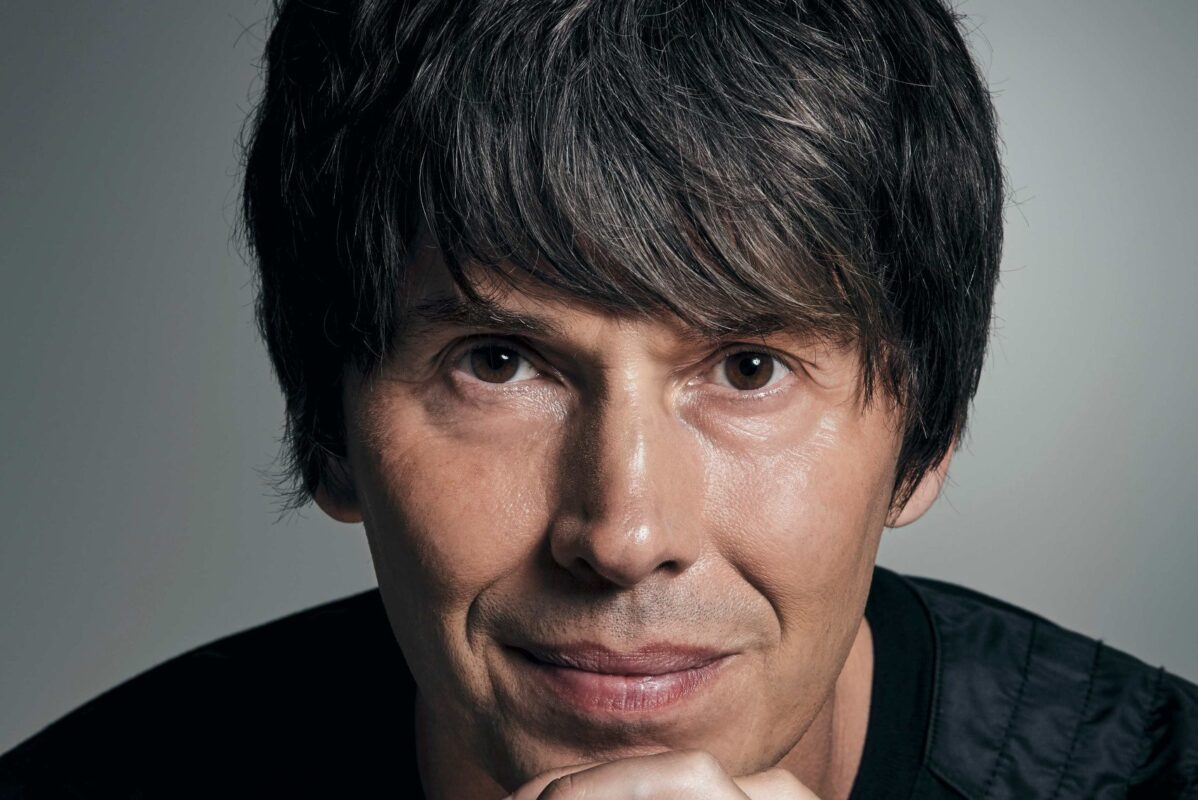The renowned scientist, TV presenter and former keyboard player on black holes, perseverance and the value of humility
My morning ritual is …
Making coffee. Beyond that, I don’t have a ritual because I have so many different things that I do.
I feel optimistic about …
Scientific progress. A good example would be the study of black holes and their relationship to quantum computers. It’s a remarkable thing that by studying black holes and trying to answer questions that Stephen Hawking posed back in the 1970s, we’re being led to a much deeper picture of how realty works. It does have relevance to trying to build quantum computers, which are potentially remarkable and transformative devices. It seems to me that our knowledge, particularly in some areas that have baffled us in physics for many years, is increasing rapidly. It’s almost as if there is a golden age of scientific discovery and progress. I’m optimistic about that.
What makes me angry
Our lack of appreciation of our fragility as a civilisation.
If I wasn’t a scientist, I’d have liked to become …
A musician, which I did, for a while [as a keyboard played for D:Ream]. I’d like to go back to that – to just making music.
The habit that has served me best in life
Not being content with not understanding something. I will sit there and it might take me a very, very long time but I won’t stop until I understand it.
The habit I’ve successfully kicked
I haven’t kicked any of my bad habits. I still behave in the same way I did when I was 18. It just takes me longer to recover.
Our knowledge, particularly in some areas that have baffled us in physics for many years, is increasing rapidly
My sources of joy are
I like figuring things out about the universe. I like music. I also enjoy exercise a lot. I used to run a lot – I used to run things like the Great North Run half marathons. But now I like to do boxing and spend time in the gym.
When things get tough I …
Go and box. I punch things: anything that’s around. It’s brilliant, and it’s great exercise as well. The great thing that I find when sparring on pads with someone is that you can’t think about anything else. It’s an extremely good form of mediation because you just have to concentrate on the task at hand.
The book I wish everyone would read
It’s not even a book but a very short essay by Richard Feynman, the Nobel prize-winning physicist, called The Value of Science. You can get it online and it’s free – it’s about three pages long. It was written in the 1950s, after he’d worked on the Manhattan Project [a research and development program undertaken during the second world war to produce the first nuclear weapons].
In the end, he says the open channel to the answer is to admit that we do not know. It’s humility. The understanding that we do not know things is the basis of all research. You don’t have any science without the acceptance that there are things that we do not know. It’s a beautiful description of how intellectual humility can lead to great things and is necessary for great things to be achieved. It’s magnificent. I’d love everyone to read it. People can get it for nothing and read it in five minutes.

‘I’ve come to the realisation that societies are a web of compromise,’ says Cox
The big thing I’ve changed my mind about in life
I’ve become less dogmatic. I think we’re all quite dogmatic when we’re younger but I’ve come to the realisation that societies are a web of compromise. But ‘compromise’ is the wrong word because ‘compromise’ suggests some sort of giving something up, whereas I’ve come to the strong view that getting along with people with whom you disagree is not a compromise. It’s a necessary part of society and society is a necessary foundation for all the things that we enjoy and take for granted.
What keeps me awake at night
If forced to guess, I would say there is only one civilisation present in the Milky Way. What keeps me awake at night is that I don’t think we are aware collectively of our value, in a very wide sense: we are not aware of the valuable position that we hold as complex life on this planet.
The thing that motivates me most of all
I’m motivated when I don’t understand something. I’m highly motivated to try and understand it.
Boxing is a good form of mediation because you just have to concentrate on the task at hand
My parents taught me …
To value things. They, in common with many people who were born just before the war, understood how valuable things are.
I have this theory that …
Complex life is very rare in the universe.
I’d like to tell my younger self …
That I should have learned a language. I do feel I’ve missed out. I was one of those people who had the opportunity, as we all do, at school and I just didn’t want to do it. Now, it is significantly more difficult. I really wish I’d not been so dismissive of language-learning when I was young.
In the UK, Brian Cox’s new five–part series Solar System is on BBC2 and iPlayer now
Photography: Mark Harrison


